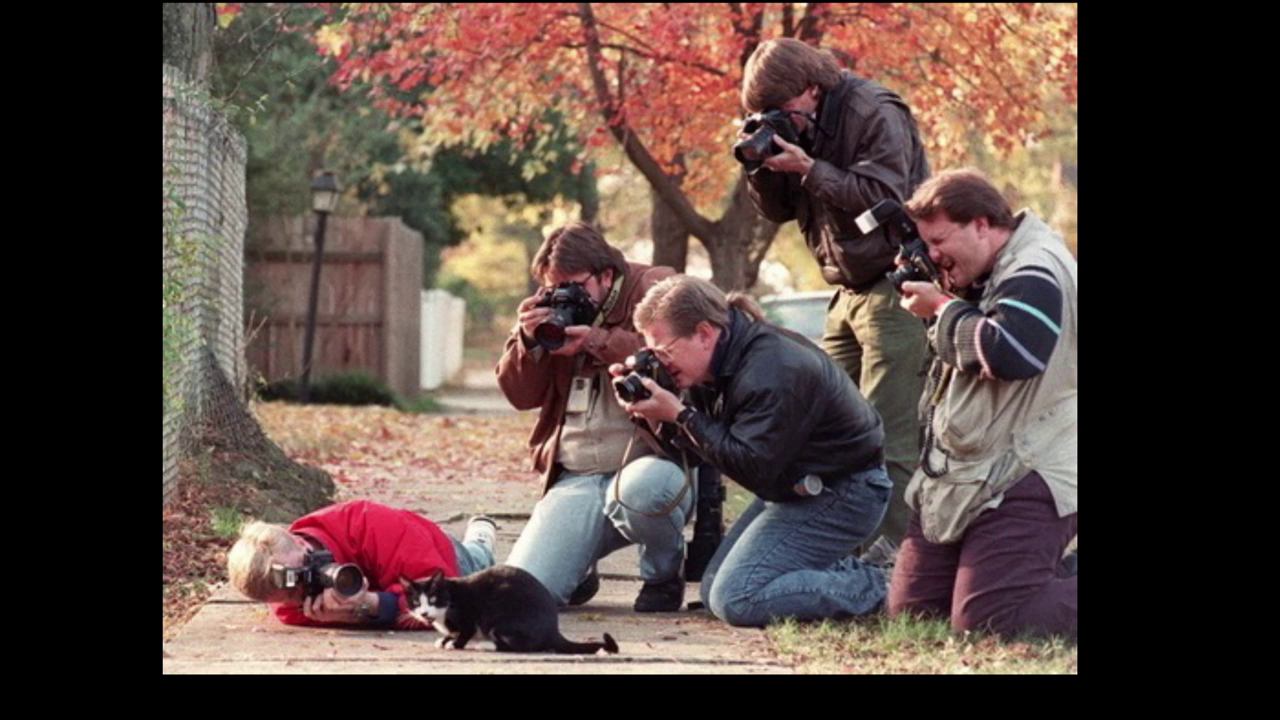I’m going to be talking about selfies and security. But first I guess a bit of previous work. Over the summer, I got a new laptop and I decided it’d be pretty funny and cool if I tricked it out. So I changed all of my desktop icons to that of Kanye West’s head, and I wrote a short tutorial on how to do it yourself cuz, you know, it’s nice and it’s a good design consideration maybe for your laptop. And it ended up blowing up. So all of these rap magazines started blogging about it, and all these other blogs. It was really crazy, but the fact that I was able to get so much reach for something I did in five minutes was absolutely mind-blowing to me. So, you know, the use of celebrities in work.
But I feel like I’m starting to think about Kanye moreso in relation to Kim Kardashian than Kanye in terms of music. It’s all pretty fluid. Both are extremely talented at what they do. Kanye’s an excellent musician. And Kim is pretty good at being famous, which I like to think is a lot more difficult than we all admit. You dedicate hours, like, 5AM workouts and two-hour makeup sessions in order to maintain an appearance that will be heavily scrutinized and torn apart by the media and the general public. Your breakdowns become cultural touchstones.

And honestly if we’ve done anything to normalize surveillance culture, it’s through the way we treat our public figures. That’s Bill Clinton’s cat. But I think Kim succeeds in both her pervasiveness in social media and also her blandness. In an interview with Paper magazine (the same magazine that she blew the Internet up with with her cover) she tells her interviewer that she’s obsessed with apps, but when pressed for details she simply responds, “I like all different apps.” Which is great. I love that.
So I think I capitalized on the banal ubiquity of Kim Kardashian in my project Kardashian Krypt, which is a steganographic Chrome extension. The project lets people send messages which are then converted to binary and embedded in the pixels of a random image of Kim, which then they are able to send to others who are then able to decode the message with the extension as well. Thus they’re able to use her status as perhaps one of the most public persons in the world as a mode of secrecy and covert communication.
But I was surprised that a lot of the reaction surrounding the project commented on Kim’s negative traits. Her vanity, her obsession with material wealth, her focus on fame, which is somewhat reasonable given what her job is. It is her job. To most people her excessive selfie-ness is a problem, and that same opinion is expressed of young people, especially women, who also engage in selfie culture through mediums like Instagram and Snapchat. Kim and other young women involuntarily act as a mirror for what we perceive as society’s worst traits. In this way, to take a selfie does not make you Narcissus, but Echo, the forest nymph who fell in love with the beautiful youth but could only express that love by repeating whatever he said.
We use the norms and tools society gives us to express the feelings we have about ourselves and others. But we’re vulnerable, and this is proven even moreso with events like The Snappening, where thousands of supposedly private images, and ephemeral images, were leaked, many of which were nudes of young women. I’m tired of these betrayals of the images sent to people that I and other people trust being used against us. So this week I’m working on a project tentatively called Safe Selfie. It lets people inject a virus into an image of their choice, such as a sext, and so that whenever somebody attempts to upload it to a server it disrupts the upload and prevents the image from being distributed to other parties.
So that’s what I’m interested in, and that’s what I’m up to this week. So maybe hit me up via Twitter or e‑mail or in person. Thank you.
